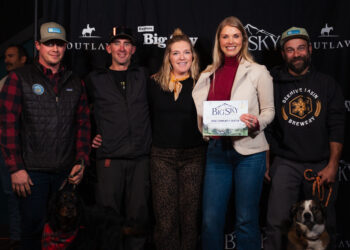By Scott Mechura EBS Food Columnist
In America, we tend to have a myopic view of food and its origins, but as a nation comprised mostly of non-indigenous people, it stands to reason we have adopted ingredients and cuisines from all over the globe.
But every place tells a similar story about food origins. Here are a few misconceptions:
U.S.: There may be no cooking method that garners more pride right here in America than barbeque. The method of indirect heat and smoke using any variety of flavored woods creating that succulent, smoky rib, brisket, or other protein you may find regionally, is a source of much pride.
Having lived in Texas for three years, I feel there is no other cuisine that possesses a greater facade of being homegrown in the red, white and blue. But this method of cooking has roots that run centuries deep. The Spanish and Portuguese took the barbecue idea to Brazil and Argentina. And, sorry Texas, Florida was the first state to see what became barbeque, as we know it.
Italy: Stop anyone on the street and ask him or her what foods define Italy. They’ll probably mention items like pasta and tomatoes.
We associate the tomato with Mediterranean cuisine and Italy probably tops that list, but this fruit is actually native to the Andes. The tomato moved through South America and was introduced to Europe via the Spanish Revolution. In fact, Italians regarded the tomato as poisonous – it’s a member of the nightshade family like potatoes and eggplant – for centuries.
Pasta didn’t originate in Italy either. Historians widely believe that Italian explorer Marco Polo brought it back from China on his more than two-decade exploration of Eastern Asia.
Ireland: Here’s some news: Ireland is not the original home of the potato. South America is rich in flavor – spices, chilies, roots, and vegetables – and it’s also native to many of the world’s staples that we now see commonplace in other cultures and continents, including the potato.
How did the spud make its way from the Peruvian Andes Mountains to Ireland and elsewhere? Most South American peoples were prolific farmers but not conquerors, so rather than exploring and taking their native foods and practices with them, foreign explorers, merchants, soldiers and traders actually took these foods from them. In this case, Spanish and Portuguese conquistadors brought the potato back to Europe.
Africa: Peanuts are entrenched in Western African diets, as well as in many Vietnamese and Thai dishes. The peanut is almost commonplace in Southeast Asia, yet its provenance is actually quite lengthy.
Peanuts made their way from South America across the Atlantic to Asia, then back again to North America with some stops along the way, including Western Africa. Peanut butter first appeared in the U.S. at the St. Louis World’s Fair in 1904, and my grandfather said peanut butter was a commonly issued food for the troops in World War II.
New Zealand: The kiwifruit (in New Zealand, to simply refer to a “kiwi” is to refer to the bird, not the fruit) is yet another food native to China. Originally called the Chinese gooseberry, it initially made the trip to New Zealand in 1906.
Oddly we never see kiwifruit in, or associated with, Chinese cuisine. The kiwifruit was also introduced to the U.S. via the 1904 World’s Fair in St. Louis. And, despite the relatively recent flight of the kiwifruit from China’s nest, this little green gem is now commonly eaten from the U.S., to Canada, Chile, France, and Greece.
Germany: Schnitzel is a German and Austrian tradition, no doubt, but ironically it’s prevalent on Israeli menus from Tel Aviv to Brooklyn. This is a prime example of how cultures readily adopt not only foods, but also dishes, no matter their history.
Studying foods and their history can be incredibly interesting, just make sure you’re sitting next to a globe or a map of the world.
Scott Mechura has spent a life in the hospitality industry. He is a former certified beer judge and currently the Executive Chef at Buck’s T-4 Lodge in Big Sky.














